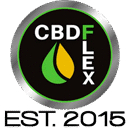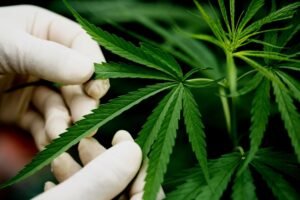Navigating the Spectrum: Exploring the Research and Potential Benefits of CBD for Autism
The conversation surrounding CBD for autism is gaining momentum as parents, caregivers, and researchers seek alternative and complementary approaches to support individuals on…
The conversation surrounding CBD for autism is gaining momentum as parents, caregivers, and researchers seek alternative and complementary approaches to support individuals on the autism spectrum. The complex neurodevelopmental condition of Autism Spectrum Disorder (ASD) presents a wide range of challenges in social interaction, communication, and repetitive behaviors. While traditional therapies and interventions remain the cornerstone of autism management, the potential of CBD for autism to alleviate certain associated symptoms has sparked considerable interest and ongoing research.
This comprehensive blog post delves into the current research landscape surrounding CBD for autism, explores the potential benefits it may offer, and addresses crucial considerations for those exploring this avenue.
Understanding Autism Spectrum Disorder (ASD)
Before diving into the specifics of CBD, it’s essential to understand the multifaceted nature of ASD. The spectrum encompasses a diverse group of individuals with varying degrees of challenges. Common characteristics can include:
- Difficulties with social communication and interaction.
- Restricted and repetitive patterns of behavior, interests, or activities.
- Sensory sensitivities.
- Anxiety and mood disorders.
- Sleep disturbances.
- Occasionally, co-occurring conditions like epilepsy.
Managing these diverse symptoms often involves a multi-pronged approach, including behavioral therapies, speech therapy, occupational therapy, and sometimes medication. However, the desire for additional support, particularly for managing anxiety, sleep issues, and challenging behaviors, has led to exploring alternative options like CBD for autism.
What is CBD? Unpacking the Basics
Cannabidiol (CBD) is a naturally occurring compound found in the cannabis plant. Unlike its well-known counterpart, tetrahydrocannabinol (THC), CBD is non-psychoactive, meaning it does not produce the “high” associated with cannabis use. CBD interacts with the body’s endocannabinoid system (ECS), a complex network of receptors, enzymes, and neurotransmitters involved in regulating various physiological processes, including mood, sleep, pain, immune function, and stress response.
The Science Behind CBD and Autism: A Potential Connection
The endocannabinoid system plays a crucial role in brain development and function, areas often implicated in autism. Research suggests that individuals with ASD may have irregularities in their ECS. This has led to the hypothesis that CBD for autism might help to modulate and balance this system, potentially leading to improvements in certain symptoms.
Researchers are still investigating the exact mechanisms, and some potential ways CBD might benefit individuals with autism include:
- Reducing Anxiety: CBD has shown promise in preclinical and clinical studies for its anxiolytic (anxiety-reducing) effects specially in products such as THCV CBD Isolate Oil. This could be particularly beneficial for individuals with autism who often experience high levels of anxiety in social situations or due to sensory overload.
- Improving Sleep: Sleep disturbances are common in individuals with ASD. CBD for sleep has potential to promote relaxation and regulate sleep cycles could lead to better sleep quality.
- Managing Seizures: For individuals with autism who also experience epilepsy, the FDA has approved CBD for the treatment of certain severe forms of childhood epilepsy,4 demonstrating its anticonvulsant5 properties.
- Modulating Behavior: Some preliminary research suggests that CBD for autism might help reduce irritability, aggression, and repetitive behaviors in some individuals. This area requires further robust investigation.
Research on CBD for Autism: What the Studies Show
The scientific research on CBD for autism is still in its early stages, but several promising studies have emerged. It’s important to note that many of these studies are small-scale and require further replication with larger sample sizes and rigorous methodologies.
Some key findings from existing research include:
- Pilot Studies: Several pilot studies have explored the safety and efficacy of CBD in children and adolescents with ASD. Some of these studies have reported improvements in anxiety, sleep, and challenging7 behaviors as reported by parents and clinicians.
- Observational Studies: Observational studies, where researchers track the outcomes of individuals with autism using CBD, have also indicated potential benefits in areas like anxiety, aggression, and communication.
- Clinical Trials: More rigorous clinical trials are underway to further investigate the efficacy of CBD for autism for specific symptoms. These trials will provide more definitive answers regarding the potential benefits and optimal dosages.
It’s crucial to emphasize that the research is ongoing, and more high-quality studies are needed to draw firm conclusions about the effectiveness of CBD for autism.
Potential Benefits of CBD for Autism: A Closer Look
Based on the current research and anecdotal evidence, some potential benefits of CBD for autism may include:
- Reduced Anxiety and Stress: This is one of the most frequently reported benefits, potentially improving social interactions and reducing meltdowns.
- Improved Sleep Quality: Better sleep can have a significant positive impact on overall well-being and daytime functioning for individuals with ASD.
- Decreased Irritability and Aggression: For some individuals, CBD may help to regulate mood and reduce instances of challenging behaviors.
- Enhanced Focus and Attention: While not consistently reported, some parents and caregivers have observed improvements in focus and attention with CBD use.
- Potential for Seizure Management: As mentioned earlier, CBD has proven anticonvulsant properties and may be beneficial for individuals with autism and co-occurring epilepsy.
It’s important to remember that individual responses to CBD can vary significantly. What works for one person may not work for another, and the optimal dosage and type of CBD product can differ.
Important Considerations and Precautions When Considering CBD for Autism
While the potential benefits of CBD for autism are encouraging, it’s crucial to approach this with caution and under the guidance of healthcare professionals. Here are some important considerations:
- Consult a Healthcare Professional: Before considering CBD for autism, it is absolutely essential to consult with a pediatrician, neurologist, or a physician experienced in treating autism and the use of CBD. They can assess the individual’s specific needs, potential risks, and monitor for any interactions with existing medications.
- Quality and Dosage: The CBD market is not yet fully regulated, so product quality can vary significantly. Choose products from reputable manufacturers that provide third-party lab testing to verify the CBD content and ensure the absence of harmful contaminants. Determining the appropriate dosage is also crucial and should be done in consultation with a healthcare professional. Start with a low dose and gradually increase as needed, monitoring for any side effects.
- Potential Side Effects: While generally considered safe, CBD can have potential side effects, including drowsiness, fatigue, diarrhea, and changes in appetite. These side effects are usually mild and temporary, but it’s important to be aware of them and report any concerns to a healthcare provider.
- Drug Interactions: CBD can interact with certain medications. It’s crucial to inform the healthcare provider about all medications and supplements the individual is currently taking to avoid potential interactions.
- Not a Cure: It’s important to understand that CBD for autism is not considered a cure for ASD. It is being explored as a potential way to manage certain associated symptoms and improve overall quality of life.
- Ongoing Research: The research on CBD for autism is still evolving. Stay informed about the latest findings and be prepared for potential changes in recommendations as more data becomes available.
Navigating the Landscape: Choosing CBD Products
If you and your healthcare provider decide to explore CBD for autism, you’ll encounter various product types, including:
- CBD Oil/Tinctures: These are typically taken sublingually (under the tongue) for faster absorption.
- CBD Capsules/Pills: These offer a convenient and precise dosage.
- CBD Edibles (Gummies, etc.): These can be appealing but may have variable absorption rates.
- CBD Topicals (Creams, Balms): These are applied to the skin and are generally used for localized pain or skin conditions, not typically for core autism symptoms.
When choosing a product, prioritize those that are:
- Third-party lab tested: This ensures the product contains the advertised amount of CBD and is free from contaminants.
- Full-spectrum or broad-spectrum: These contain other beneficial compounds from the cannabis plant (excluding THC in broad-spectrum) that may enhance the effects of CBD. Isolate products contain only pure CBD. Discuss with your doctor which type might be most suitable.
- From reputable manufacturers: Research the company’s reputation and transparency.
The Future of CBD and Autism Research
The future of research on CBD for autism is promising. As more rigorous clinical trials are conducted, we will gain a better understanding of its efficacy, optimal dosages, and potential long-term effects. Researchers are also exploring the specific mechanisms by which CBD might impact the brain and behavior in individuals with ASD.
Continued research will help to:
- Identify which specific symptoms of autism are most likely to be improved by CBD.
- Determine the most effective types and dosages of CBD for different individuals.
- Understand the long-term safety and efficacy of CBD use in individuals with ASD.
- Develop evidence-based guidelines for the use of CBD in autism management.
Conclusion: A Promising Avenue with a Need for More Research
CBD for autism holds potential as a complementary approach to managing certain associated symptoms like anxiety, sleep disturbances, and challenging behaviors. While the existing research is encouraging, it is still in its early stages, and more robust clinical trials are needed to confirm its effectiveness and safety.
If you are considering CBD for autism for yourself or a loved one, it is crucial to consult with a qualified healthcare professional who can provide personalized guidance and monitor for any potential risks or interactions. Staying informed about the latest research and approaching this option with realistic expectations is key. As the scientific understanding of CBD and its effects on autism continues to grow, it may become an increasingly valuable tool in the comprehensive management of this complex condition.
Frequently Asked Questions (FAQs) about CBD for Autism

1. What is CBD and how might it help with autism symptoms?
Researchers have identified CBD (cannabidiol) as a non-psychoactive compound in cannabis that interacts with the body’s endocannabinoid system. Research suggests it may help with anxiety, sleep issues, and potentially challenging behaviors often associated with autism by modulating this system.
2. Is there scientific evidence that CBD is effective for autism?
While several pilot and observational studies show promising results regarding CBD for autism, particularly for anxiety and sleep, researchers need to conduct more large-scale, rigorous clinical trials to establish definitive evidence of its effectiveness for various autism symptoms.
3. Is CBD safe for children with autism?
Generally, people consider CBD safe, but potential side effects like drowsiness, fatigue, and changes in appetite can occur. It’s crucial to consult with a pediatrician or neurologist experienced in CBD for autism to discuss potential risks and benefits and determine appropriate dosage.
4. What type of CBD product is best for autism?
There is no definitive “best” type. CBD oils/tinctures, capsules, and edibles are common. The choice often depends on individual preferences and the guidance of a healthcare professional. Opt for third-party lab-tested, reputable brands and discuss whether full-spectrum, broad-spectrum, or isolate CBD is most suitable.
5. Can CBD cure autism?
No, experts do not consider CBD for autism a cure for Autism Spectrum Disorder. Researchers are exploring it as a potential way to manage certain associated symptoms and improve the quality of life for individuals on the spectrum. Traditional therapies and interventions remain the primary approach to autism management.







